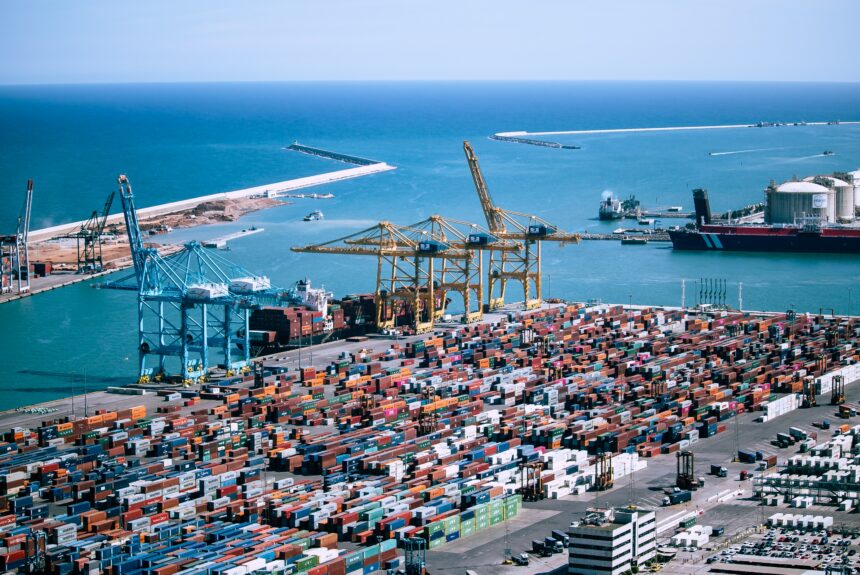Inflation at 40-year highs is hammering American families. Drivers are paying more than $5 per gallon and energy costs are up more than 30 percent from a year ago. Food prices at grocery stores and restaurants are up nearly 10 percent, and higher prices across the board are harming low-income households the most. Knowing very well that potential moves to cut inflation are a primary objective, the Biden administration must act. One immediate action is to cut tariffs.
Recent research from the Peterson Institute for International Economics suggests that cutting tariffs could save households nearly $800 per year. The research finds:
A 2 percentage point tariff-equivalent reduction across a broad array of goods entering the US market could deliver an estimated one-time reduction of 1.3 percentage points in CPI inflation, currently raging at 8.3 percent. That reduction would save $797 per US household. While it would not be practical (or even legal) for President Biden to slash tariffs by 2 percentage points across the board, the Biden administration could take many individual steps to achieve trade liberalization that is equivalent to a 2 percentage point reduction in tariffs.
Treasury Secretary Janet Yellen is right to say that tariff reduction is not “a panacea” to cut inflation, but stressed that “some reductions may be warranted and could help to bring down prices of things that people buy that are burdensome.”
As we’ve written before and as we emphasized throughout our Climate and Freedom Agenda, cutting certain tariffs and non-tariff barriers could also advance the administration’s climate objectives. For instance, solar tariffs have increased costs and stunted the installation of solar arrays in the U.S.
Antiquated laws like the Jones Act make it more expensive to transport oil and increases congestion (and emissions) on highways. The law mandates that oil (and other goods) shipped between two ports in the U.S. must be transported on a U.S.-built, U.S.-flagged vessel with a crew that is at least 75% American. The American Fuel and Petrochemical Manufacturers recently noted that “West Coast refineries find it vastly more affordable to import lighter crude oil from Asia than to have the same quality U.S. crude shipped in. Jones Act exemptions and other reforms could help.”
Many studies have highlighted the environmental benefits of trade liberalization. Trade opens the market for the creation of newer, cleaner and more efficient technologies. A 2018 report from the World Trade Organization and the United Nations estimated that “The top 18 developing countries ranked by greenhouse gas emissions would be able to import 63 percent more energy-efficient lighting, 23 percent more wind power generation equipment, and 14 percent more solar power generation equipment if the trade barriers they maintain on these goods were to be abolished.”
Two concerns are worth addressing. The first is that more trade results in more production and therefore higher emissions. For instance, a recent article in Nature examined removing tariffs in the Regional Comprehensive Economic Partnership, which comprises countries in East Asia and the South Pacific. The authors found that tariff elimination would increase carbon dioxide emissions by 3.1 percent, but also found that “the burdens can be lessened to some extent by the technological spillover effects of deeper trade liberalization.” Other studies have shown that greater wealth as a result of freer trade provides more resources to devote to environmental protection and outweighs the pollution created by firms producing more.
The second is China. Policymakers should be tough on China. Cheaper solar panels and other goods should not come from the work of incarcerated Uyghurs. Blanket tariffs that increase costs for consumers, however, do little to change that behavior and more effective mechanisms exist to combat human rights atrocities and unfair trade practices. Last December, President Biden signed the Uyghur Forced Labor Prevention Act into law. The law goes into effect on June 22nd and the U.S. Customs and Border Control recently released guidance as to how the agency will enforce the law. Furthermore, the World Trade Organization has a dispute-resolution body to address unfair trade practices and the U.S. has levied antidumping and countervailing duties on solar cells and modules imported from China and Taiwan.
The views and opinions expressed are those of the author’s and do not necessarily reflect the official policy or position of C3.
